Winter brings many challenges for the backyard chicken-keeper, and frozen water is chief among them. You can make your own waterer heater for use with either metal or plastic waterers. It will cost less than $10, cost pennies to run and you can complete the project in under ten minutes!
We had record-breaking, sub-zero temperatures for long periods of time in 2010 here in Connectictut and my waterers never iced over the way they used to without these heaters. It doesn’t seem as though a humble, 40 watt lightbulb should be able to produce enough warmth to keep the water in a plastic waterer from icing over, but remarkably, it does!
Supplies:
-
10″, metal cookie tin (available at most dollar & thrift stores & likely in your garage or basement)
-
lamp assembly kit (available oniline, at hardware & home improvement stores OR buy a thrift store/tag sale lamp and take it apart)0
- 40 watt, incandescent light bulb (in deep-freeze conditions, use a 60 watt bulb)(in light of the government phase-out, some users recommend 40 watt candelabra bulbs or CFL bulbs, but I have not, so I cannot vouch for their effectiveness)
- Drill with 3/8″ drill bit
INSTRUCTIONS:
1. Drill a hole in the side of the cookie tin.
2. String the pre-threaded lamp stem assembly through the hole & tighten the screw on the stem.
3. Screw in the light bulb. Voila!
TO USE:
Put the top on the cookie tin and place the tin on a cinder block or another level surface in the chicken run. Plug into a GFI outlet. Place metal or plastic waterer on top of the water heater when freezing temperatures are anticipated. Disconnect when not in use or use a ThermoCube to turn the unit on when temperatures reache 35°F.
When I made my first cookie tin water heater, I found it difficult to believe that this device, which barely felt warm to the touch, could possibly do the intended job. I was only convinced the first frigid morning I went out into the run and found no ice ring to chip out of the waterer. You may have to try it to believe it too.
Kathy Shea Mormino
Affectionately known internationally as The Chicken Chick®, Kathy Shea Mormino shares a fun-loving, informative style to raising backyard chickens. …Read on


shop my SPONSORS
Winter brings many challenges for the backyard chicken-keeper, and frozen water is chief among them. You can make your own waterer heater for use with either metal or plastic waterers. It will cost less than $10, cost pennies to run and you can complete the project in under ten minutes!
We had record-breaking, sub-zero temperatures for long periods of time in 2010 here in Connectictut and my waterers never iced over the way they used to without these heaters. It doesn’t seem as though a humble, 40 watt lightbulb should be able to produce enough warmth to keep the water in a plastic waterer from icing over, but remarkably, it does!
Supplies:
-
10″, metal cookie tin (available at most dollar & thrift stores & likely in your garage or basement)
-
lamp assembly kit (available oniline, at hardware & home improvement stores OR buy a thrift store/tag sale lamp and take it apart)0
- 40 watt, incandescent light bulb (in deep-freeze conditions, use a 60 watt bulb)(in light of the government phase-out, some users recommend 40 watt candelabra bulbs or CFL bulbs, but I have not, so I cannot vouch for their effectiveness)
- Drill with 3/8″ drill bit
INSTRUCTIONS:
1. Drill a hole in the side of the cookie tin.
2. String the pre-threaded lamp stem assembly through the hole & tighten the screw on the stem.
3. Screw in the light bulb. Voila!
TO USE:
Put the top on the cookie tin and place the tin on a cinder block or another level surface in the chicken run. Plug into a GFI outlet. Place metal or plastic waterer on top of the water heater when freezing temperatures are anticipated. Disconnect when not in use or use a ThermoCube to turn the unit on when temperatures reache 35°F.
When I made my first cookie tin water heater, I found it difficult to believe that this device, which barely felt warm to the touch, could possibly do the intended job. I was only convinced the first frigid morning I went out into the run and found no ice ring to chip out of the waterer. You may have to try it to believe it too.



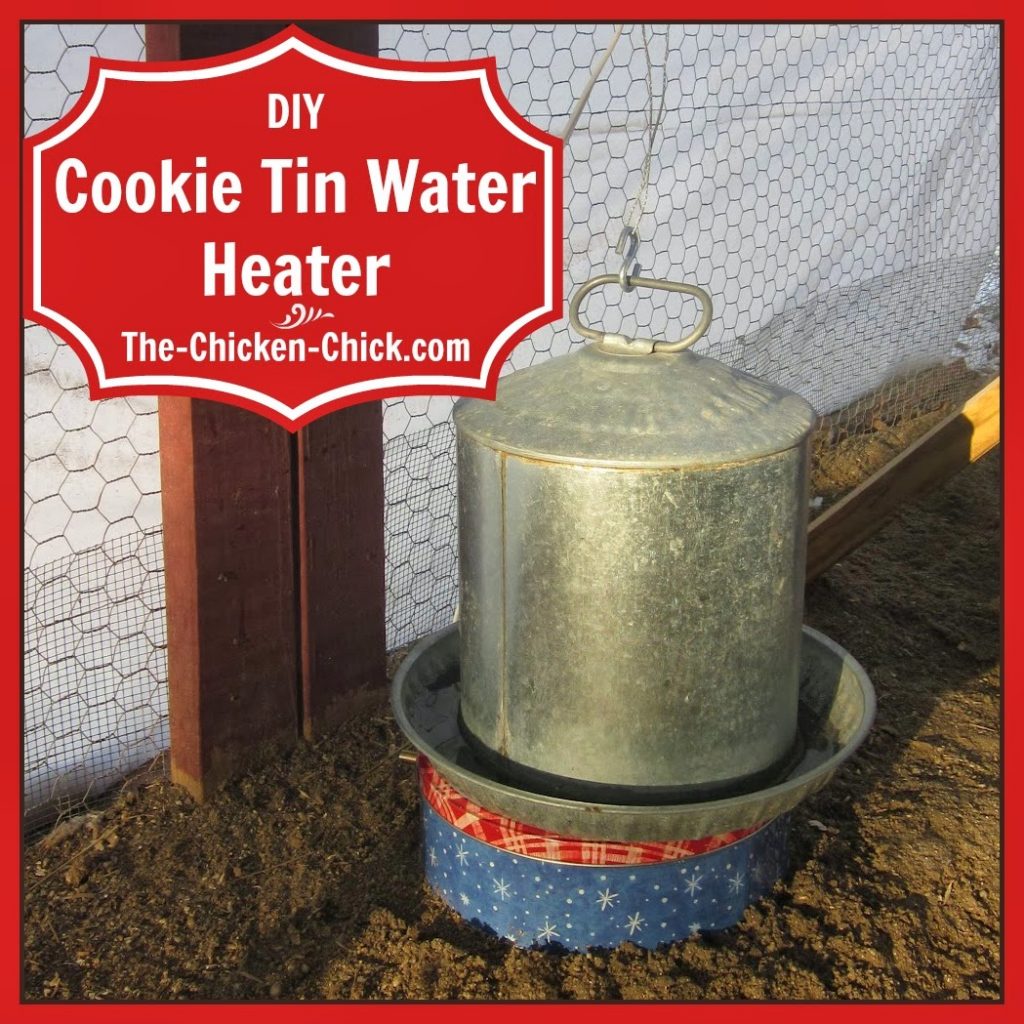
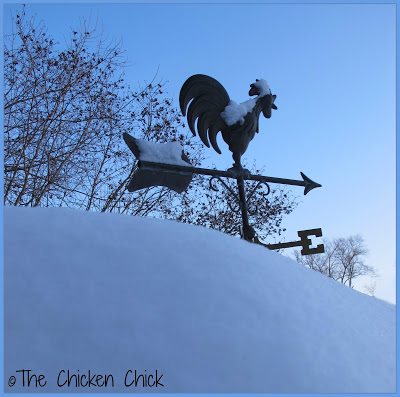
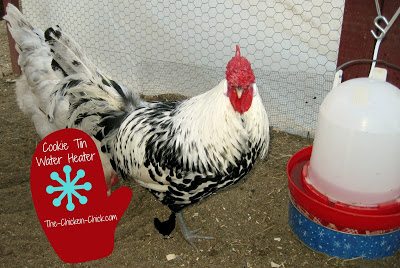
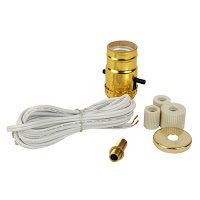
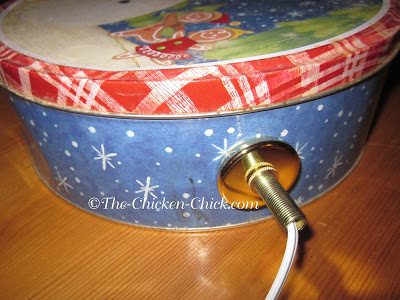
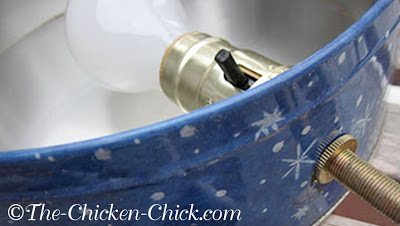
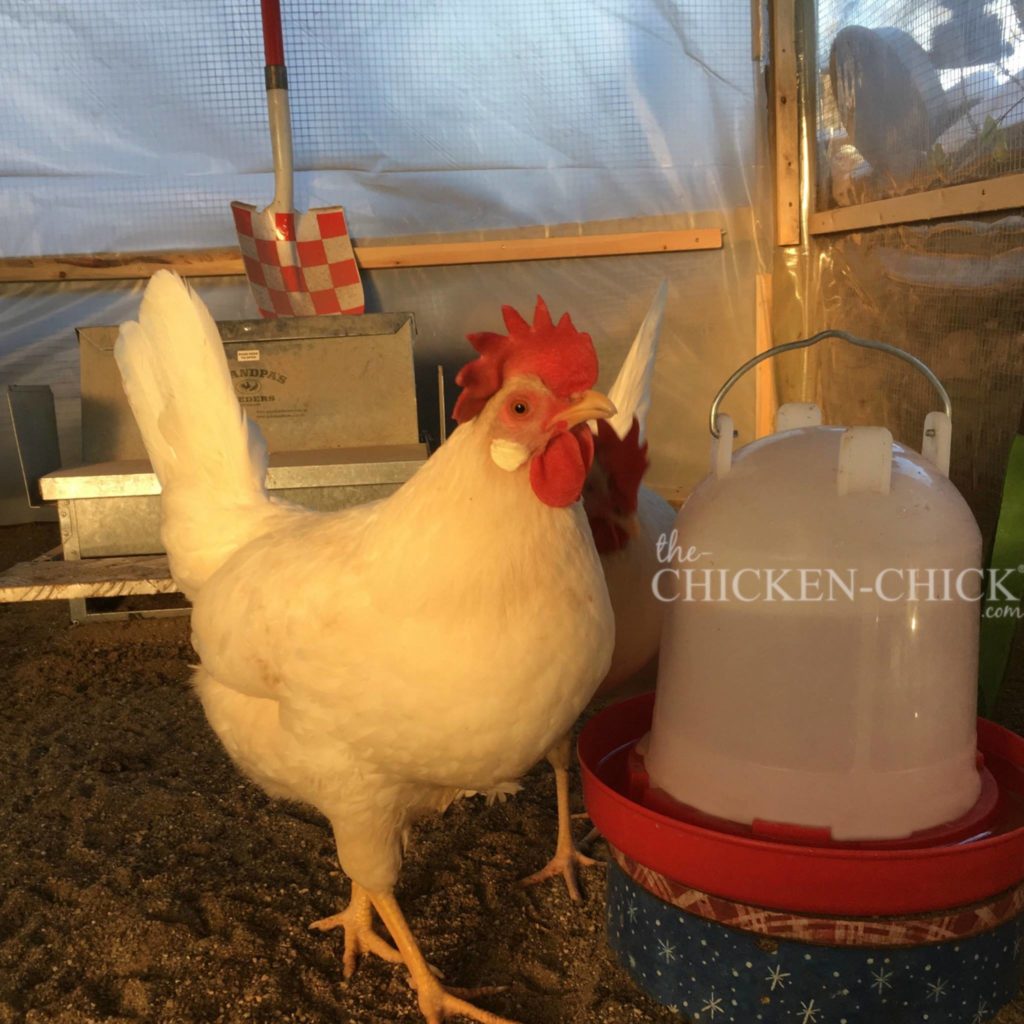
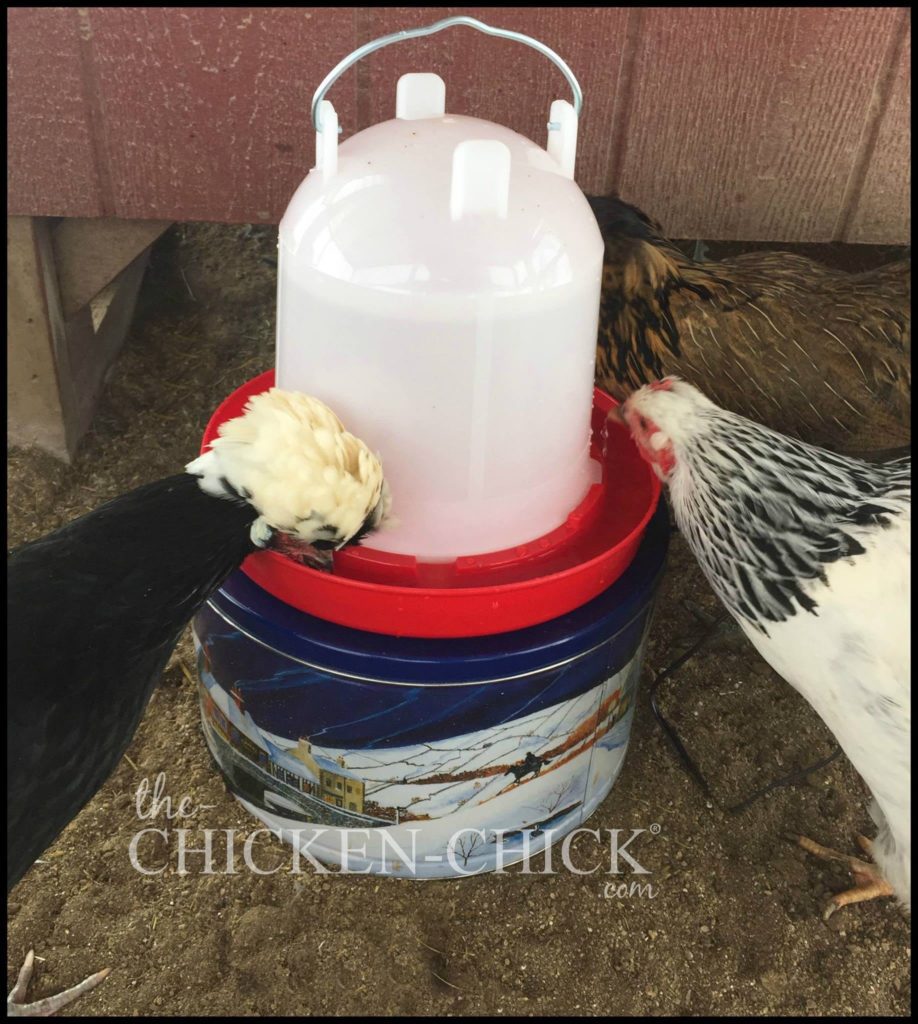
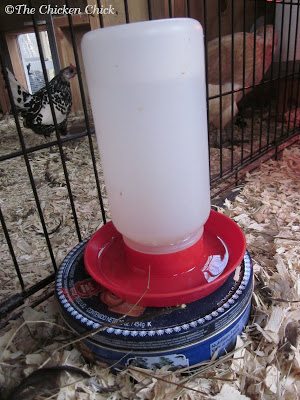
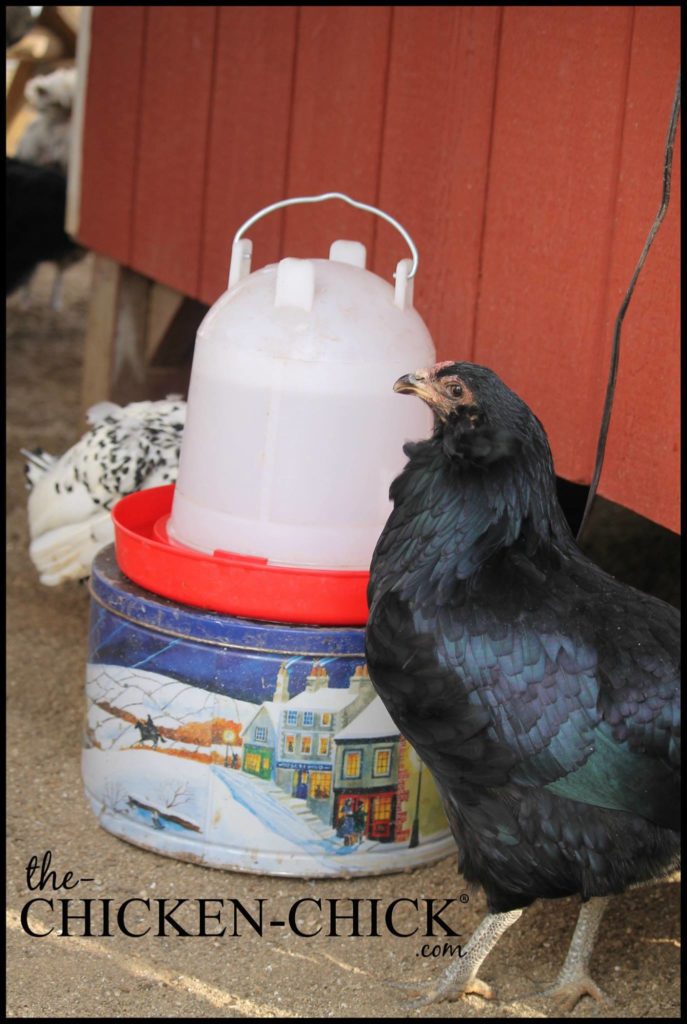






















I love when you can do things yourself and save money. Thanks for the info.
Me too! And you're welcome. :)
Thank you for adding a wonderful new chicken friend to your site. Her art work is delightful. And This is a great project that even I can do. for my chicken yard this winter. got to make life easier for everyone. You work very hard to give good info to us all thank you. Lynn Crone
You're so sweet, Lynn. Thank you for saying that.
I think you'll find this project simple and effective. Happy to have been able to share it with you. ☺
sweet idea, going to have to try it out!!!
Let me know what you think, Laurel.
that is a wonderful idea! going to try it this winter!
Thanks Robin. Let me know what you think.
We made one of these after reading this post last winter ! Such a good idea, thanks ! I'd also love to be entered in the book giveaway. It looks great- our whole family would enjoy it :) Renee rlb_13@hotmail.com
Hi Renee. Happy to hear the cookie tin heater is working for you too. :) Thanks for entering the giveaway tonight. "The Chicken and the Dog" is an adorable children's story.
Renee, Congratulations! You are the winner of a copy of 'The Chicken and the Dog' by Andre and Amanda Maxwell!!
I will email you to get your address.
Enjoy the book!